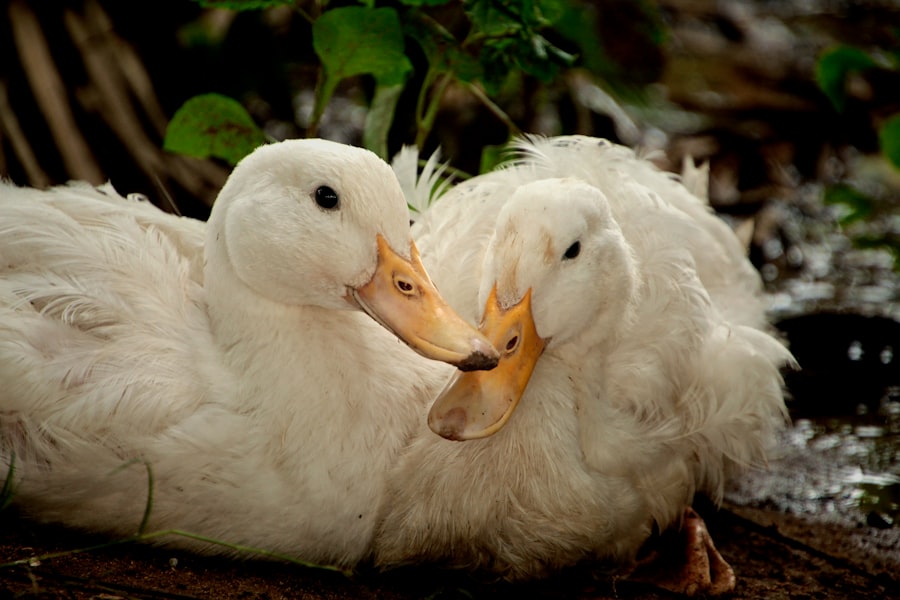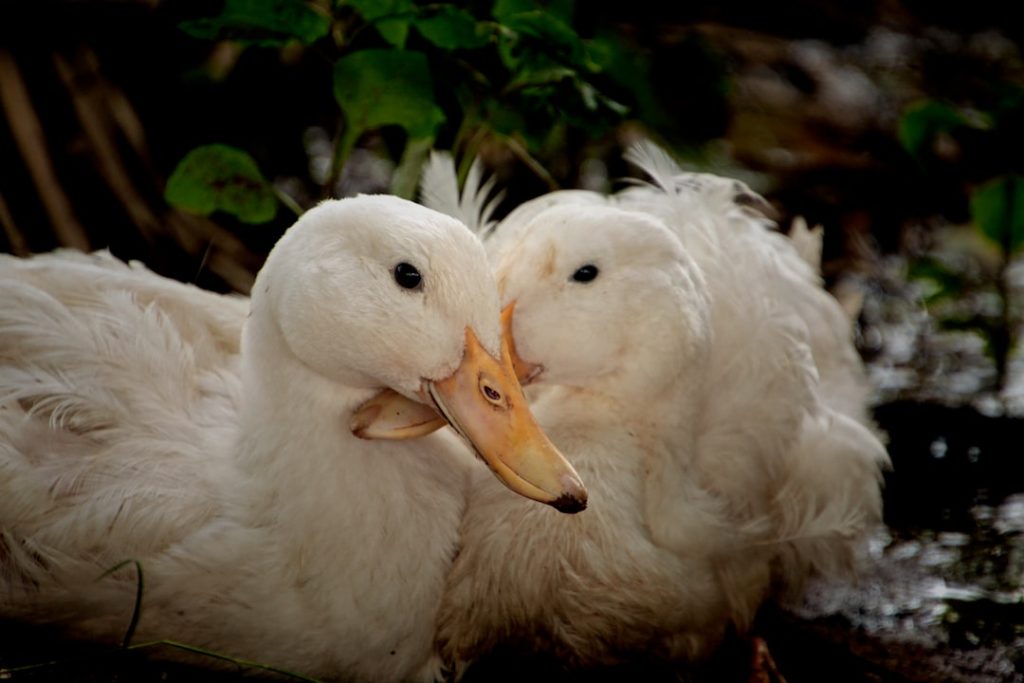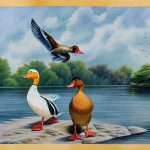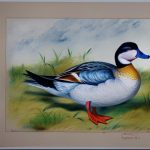Ducks are known for their ability to lay eggs, and there are several breeds that are specifically known for their egg-laying capabilities. Some of the most popular egg-laying duck breeds include the Khaki Campbell, Runner, and Pekin ducks. Each of these breeds has its own unique characteristics and traits that make them well-suited for egg production. Understanding the differences between these breeds can help you choose the best one for your specific needs.
The Khaki Campbell duck is a popular breed known for its high egg production. They are a medium-sized duck with a khaki-colored plumage, and they are known for their friendly and sociable nature. Khaki Campbells are excellent layers, often producing up to 300 eggs per year. They are also known for their calm and docile temperament, making them a great choice for backyard flocks. The Runner duck is another popular egg-laying breed known for its upright and distinctive posture. They come in a variety of colors, including white, fawn, and black, and are known for their high energy levels and active nature. Runner ducks are also excellent layers, often producing up to 200 eggs per year. Finally, the Pekin duck is a large, white duck breed known for its excellent egg production. Pekins are known for their friendly and calm temperament, making them a popular choice for backyard flocks. They are also excellent layers, often producing up to 200 eggs per year.
Table of Contents
- 1 Factors to consider when choosing the best egg laying duck breed
- 2 The top 3 egg laying duck breeds
- 3 Characteristics and traits of the Khaki Campbell duck
- 4 Characteristics and traits of the Runner duck
- 5 Characteristics and traits of the Pekin duck
- 6 Tips for maximizing egg production from your duck flock
- 7 FAQs
Key Takeaways
- Different egg laying duck breeds include Khaki Campbell, Runner, and Pekin
- Factors to consider when choosing the best egg laying duck breed include climate, space, and egg production
- The top 3 egg laying duck breeds are Khaki Campbell, Runner, and Pekin
- Khaki Campbell ducks are known for their high egg production and calm temperament
- Runner ducks are excellent foragers and have a unique upright posture
- Pekin ducks are known for their large size, white feathers, and friendly disposition
- Tips for maximizing egg production from your duck flock include providing a balanced diet, proper housing, and regular health checks
Factors to consider when choosing the best egg laying duck breed
When choosing the best egg-laying duck breed for your flock, there are several factors to consider. First, consider the climate in your area. Some duck breeds are better suited to cold climates, while others thrive in warmer environments. Additionally, consider the space you have available for your ducks. Some breeds require more space to roam and forage, while others can thrive in smaller areas. It’s also important to consider the temperament of the breed. Some breeds are more docile and friendly, while others are more active and energetic. Finally, consider the egg production of the breed. Some breeds are known for their high egg production, while others may not lay as many eggs.
The top 3 egg laying duck breeds
The top three egg-laying duck breeds are the Khaki Campbell, Runner, and Pekin ducks. These breeds are known for their excellent egg production and are popular choices for backyard flocks. The Khaki Campbell duck is often considered the best egg-laying duck breed, as they can produce up to 300 eggs per year. They are also known for their friendly and sociable nature, making them a great choice for beginners. The Runner duck is another top egg-laying breed, often producing up to 200 eggs per year. They are known for their active nature and distinctive upright posture. Finally, the Pekin duck is a popular choice for egg production, often producing up to 200 eggs per year. They are known for their friendly and calm temperament, making them a great choice for families.
Characteristics and traits of the Khaki Campbell duck
The Khaki Campbell duck is a medium-sized breed known for its excellent egg production. They have a khaki-colored plumage and a friendly and sociable nature. Khaki Campbells are known for their high energy levels and active nature, making them great foragers. They are also known for their calm and docile temperament, making them a popular choice for backyard flocks. In addition to their excellent egg production, Khaki Campbells are also known for their ability to adapt to a variety of climates, making them a great choice for beginners.
Characteristics and traits of the Runner duck
The Runner duck is a unique breed known for its distinctive upright posture and high energy levels. They come in a variety of colors, including white, fawn, and black, and are known for their active nature. Runner ducks are excellent foragers and thrive in free-range environments. They are also known for their friendly and sociable nature, making them a great choice for families. In addition to their excellent egg production, Runner ducks are also known for their ability to adapt to a variety of climates, making them a versatile choice for backyard flocks.
Characteristics and traits of the Pekin duck

The Pekin duck is a large, white breed known for its excellent egg production. They have a friendly and calm temperament, making them a popular choice for families. Pekins are also known for their ability to adapt to a variety of climates, making them a versatile choice for backyard flocks. In addition to their excellent egg production, Pekin ducks are also known for their fast growth rate and high meat quality, making them a popular choice for dual-purpose flocks.
Tips for maximizing egg production from your duck flock
There are several tips you can follow to maximize egg production from your duck flock. First, provide your ducks with a balanced diet that includes plenty of protein and calcium to support egg production. You can also supplement their diet with oyster shells or crushed eggshells to ensure they have enough calcium. Additionally, provide your ducks with plenty of clean water for drinking and bathing, as this can help support their overall health and egg production. It’s also important to provide your ducks with a safe and comfortable nesting area where they can lay their eggs undisturbed.
Another tip for maximizing egg production is to provide your ducks with plenty of space to roam and forage. Ducks that have access to a variety of plants and insects in their environment are more likely to lay eggs consistently. Finally, make sure to regularly collect eggs from your nesting area to prevent them from being damaged or eaten by predators. By following these tips, you can help maximize egg production from your duck flock and enjoy a steady supply of fresh eggs.
If you’re interested in learning about the best egg laying breeds of ducks, you might also want to check out this informative article on the incubation period for goose eggs. Understanding the incubation process is crucial for successful breeding and raising of waterfowl. You can find more details on this topic at Poultry Wizard.
FAQs
What are the best egg laying breeds of ducks?
The best egg laying breeds of ducks include the Khaki Campbell, Indian Runner, and the White Crested.
How many eggs can a duck lay in a year?
On average, a duck can lay between 150-300 eggs per year, depending on the breed and individual bird.
At what age do ducks start laying eggs?
Ducks typically start laying eggs at around 5-7 months of age, although this can vary depending on the breed and individual bird.
What factors can affect a duck’s egg laying ability?
Factors that can affect a duck’s egg laying ability include diet, environment, stress, and overall health.
How can I encourage my ducks to lay more eggs?
To encourage ducks to lay more eggs, provide them with a balanced diet, a clean and comfortable nesting area, and minimize stress in their environment.
Meet Walter, the feathered-friend fanatic of Florida! Nestled in the sunshine state, Walter struts through life with his feathered companions, clucking his way to happiness. With a coop that’s fancier than a five-star hotel, he’s the Don Juan of the chicken world. When he’s not teaching his hens to do the cha-cha, you’ll find him in a heated debate with his prized rooster, Sir Clucks-a-Lot. Walter’s poultry passion is no yolk; he’s the sunny-side-up guy you never knew you needed in your flock of friends!







